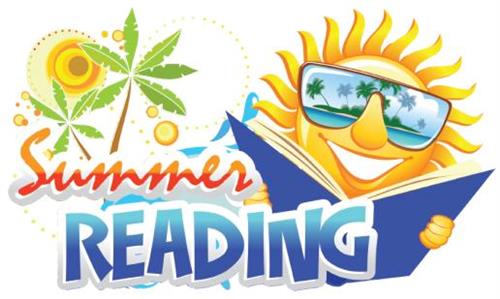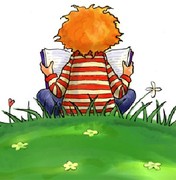15 Great Summer Reading Tips for Parents
1. Read together everyday! This can become a very special time shared with your child.
2. Set a good example. Let your child see you reading every day. Have lots of good reading material around the house.
3. Visit the library often. Children enjoy choosing new books to read. Take advantage of reading programs and other materials found at the library, such as books on tape.
4. Read the same books. Read your child's favorite books over and over again. This helps children learn to identify words in print and can help increase fluency.
5. Let children make their own book selections. Some popular books may not be a parent's first choice, but by allowing children to read what interests them can make reading more pleasurable. Comic books and children's magazines are popular with children.
6. Stop while reading. Stop and ask questions about the story or the illustrations. Discuss what is happening in the story or what the child thinks might happen next.
7. Discuss vocabulary. Talk about new words: what they mean, how they were used in the sentence, or make comparisons. For example, if the new word was "palace", discuss how a castle, a mansion, or a very big house might be like a palace.
8. Work with large type. Point to words as you read. This helps children identify words while reinforcing how to read from left to right.
9. Read a variety of genres. Read picture books, fairy tales, adventures, informational books, tall tales, and mysteries. This will help expand the interests of your child. Watch a movie of the book, if available, and talk about how the two are different and alike.
10. Books on tape/CD. These can be listened to in the car, or the whole family can enjoy them together. Sometimes after a child has heard a story, they will want to read he book independently.
11. Subscribe to a children's magazine. There are many wonderful children's magazines. Subscribe to one of these in your child's name, because they love to received mail. They will look forward to the arrival of the magazine and will be eager to start reading or having it read to them. The local library also a good selection of magazines for children.
12. Point out the importance of reading in the real world. Talk about how people read menus, maps, food labels, directions, newspapers, video labels, brochures, cookbooks, street signs, billboards, addresses, and phone books.
13. Extend the reading experience. If your child is reading a book about animals, visit a zoo. If your child is reading about nature, take a walk.
14. Make your own books on tape. Record a story together. Read with expression; use funny voices; read dramatically.
15. Create a reading project. When your child has finished reading a story, create a fun project that relates to the story. For example, cook something from the story, draw an illustration, or mold a clay sculpture.




 Launch the media gallery 1 player
Launch the media gallery 1 player